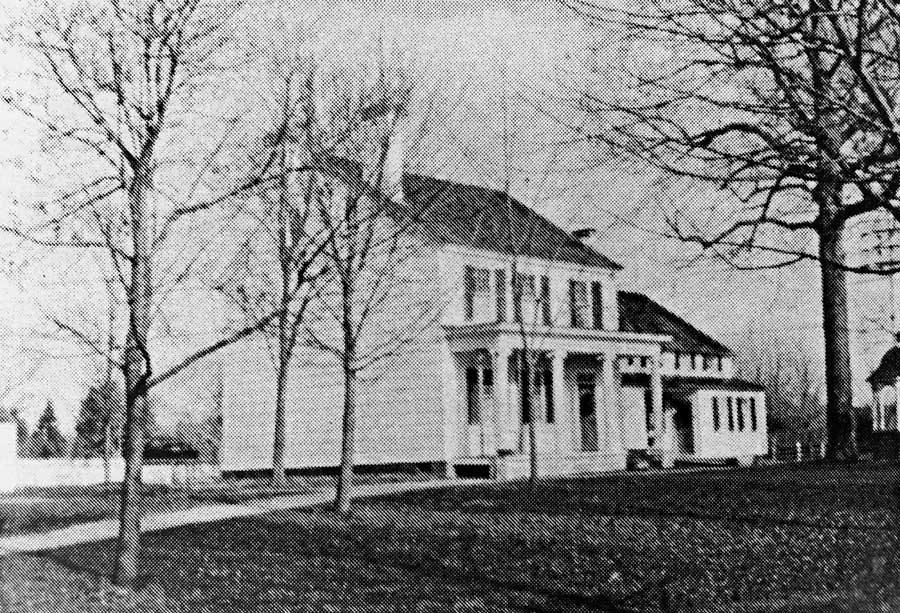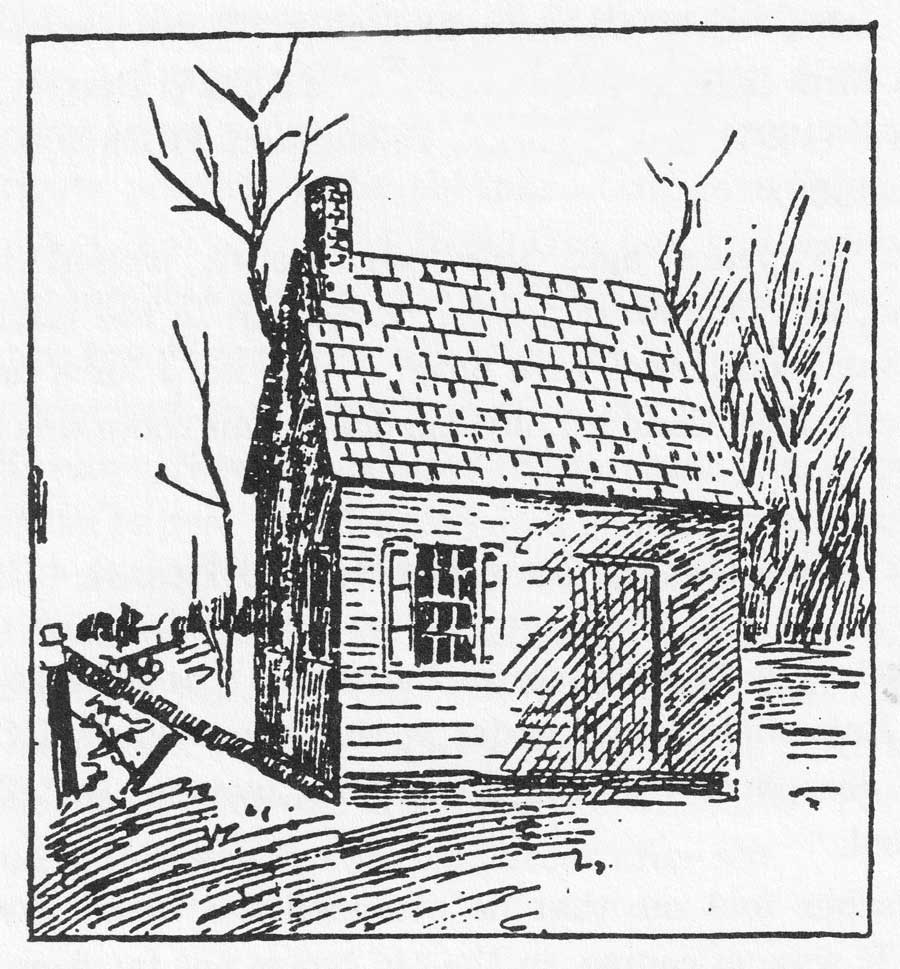Clara Barton. Before she was the “Angel of the Battlefield” and before she started the American Red Cross, Ms. Barton spent some time right here in Hightstown. This is the story of how that came to be and her impact on one particular resident.
Before she became involved in humanitarian efforts, Clara Barton was a school teacher throughout Massachusetts from 1838 to 1850, but she always felt that her education was lacking. So, in 1850 she enrolled at the Clinton Liberal Institute in Oneida County, New York State, a Universalist co-ed preparatory school. It was here that she met siblings Charles and Mary Norton (uncle and aunt of Grace Norton Rogers) of Hightstown and started a friendship with them. At some point in 1850, Charles and Mary invited Clara to their family farm. Looking for a change of scenery Clara took them up on their offer and made the trip from New York State to Hightstown in October 1851.

Ely-Norton farm at 75 Imlaystown Road in East Windsor.
Clara stayed with the Norton family at the Ely-Norton Farm at 75 Imlaystown Road, in the southeast corner of East Windsor. According to the letters she wrote to her nephew, Clara found the Norton home to be a “large, well-cultivated” farm. On the day she arrived she and the Norton’s went for a walk in the woods after dinner where they picked chestnuts, gum berries, and persimmons. She also describes the Norton home as being “prettily furnished” with a “good piano” and a “large window looking into the garden.” Through Clara’s letters we also know that she thought the Norton’s were “a sterling family” that were “good as gold and true as the sun.”
Shortly after Clara arrived in Hightstown Charles and Mary Norton’s father, Richard Norton, approached Clara with the idea of becoming a school teacher at the Cedarville Road School. Clara, being a very private person, didn’t divulge to the Norton family her past experiences as a teacher, so Richard was at first unsure if Clara would be willing to take the position. You see, the Cedarville School was known for having a rough gang of boys who were particularly troublesome during the winter term. Fortunately for Richard, and for Hightstown, Clara had dealt with rough boys in the past. In fact, it was well known throughout Massachusetts that not only was Clara able to handle rough boys but she was able to tame them and gain their respect. Clara took the position, but only if Mary would go along to help. Clara’s pay was $2 per student for each eleven-week session (this was before public education so parents paid the $2 directly to the teacher).

Pencil sketch of the Cedarville Road School.
According to Clara’s diary she started school on October 23, 1851. She described the younger students as being eager, but timid. The older boys, however, looked challenging and defiant. This was familiar territory for Clara and she won over the older boys as she had in the past, by aligning herself with them instead of against them. There was one boy, however, who required a little more attention.
Hart Bodine was a big boy. In fact, he towered over five-foot tall Clara. Hart’s reputation proceeded him, so Clara knew going in that she would need to win him over. On the first day of school, Clara asked Hart to collect the long, thin tree branches known as “whips” that prior teachers used to discipline the children. I’m sure Hart was certain he was destine for a whipping, but was probably surprised when Clara asked him to break the whips into tiny pieces. Then she took Hart by the hand and told him that she would never need the whips because he was one of her big boys and she could depend on him to help her keep the other students in line. From that day forward Hart was a changed boy. Later in his life, his mother wrote, “from that time on Hart was a model of obedience in the schoolroom.” He was always ready to help no matter how small the task. He was the first to greet Clara at the school in the morning and at the end of the day he wouldn’t leave the schoolhouse until Clara was ready to head back to the Norton farm. Overnight, Hart went from being the most troublesome boy in school to the best-behaved student all because Clara showed him respect instead of discipline.
Years later, after Hart was married and had started a career as a carpenter, Hart and his wife had a baby girl. This daughter was named Clara Barton Bodine in honor of the school teacher who turned his outlook on life around.
One-Act Musical
We produced a one-act musical about Clara Barton called Clara Barton Slept Here. You can see the performance here on our YouTube channel.
Support local history like this by becoming a member here.
